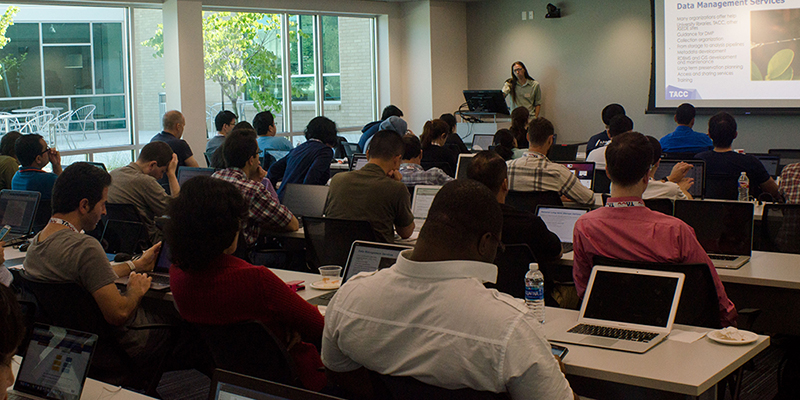
June 26, 2017
By: Andrew Jones, NAG
In the recent ISC17 conference in Frankfurt, Germany, the HPC community’s attention was inevitably focused on big supercomputers, new processors, and other technologies. Of course, there were a number of voices also calling for attention to the non-hardware aspects of HPC, especially software and people. However, most of those discussions centered on programmers, sysadmins, and researchers using HPC, as is customary in the HPC community.

Source: TACC
In a similar manner, training courses at HPC centres are almost exclusively aimed at programmers and new users. Many people reading the title of this article might think of the future leading computational scientists, that is, users, or computer science/technology researchers.
But, there are many people whose primary role is running HPC centres, fighting for funding, architecting and delivering HPC services to users, to enable that computational science and engineering output. Most of these HPC leaders have evolved into the role from a background as a user or as service staff. Unfortunately, the development and training opportunities to help future HPC service managers learn essential skills are scarce.
A number of HPC leaders in industry have recognised this problem, and have called for an opportunity for their HPC systems and computational sciences staff to learn about the business processes required to deliver a successful HPC environment. They believe this training will be essential in developing future HPC leaders and improving the collaboration with the researchers they support.
Some readers will know that the author of this article has been actively trying to address this issue for several years, with tutorials (e.g., SC13, SC16, OGHPC17) webinars and conference talks. Due to this demand from the HPC community, TACC and NAG have combined to create the first “HPC for Managers” training program in Austin Texas, September 12-14. Topics covered will include strategic planning, technology options, procurement and deployment, people issues, total cost of ownership, performance measurement, and more. A broad scope of HPC is covered from department scale clusters to the largest supercomputers, and consideration of cloud.
This training is a major step forward in professional training for HPC managers and developing the future leaders in the community. Registration is open now. Details and a full agenda can be found at: https://www.tacc.utexas.edu/education/institutes/hpc-concepts-for-managers
Andrew Jones can be contacted via twitter (@hpcnotes), via LinkedIn (https://www.linkedin.com/in/andrewjones/), or via the TOP500 editor.
